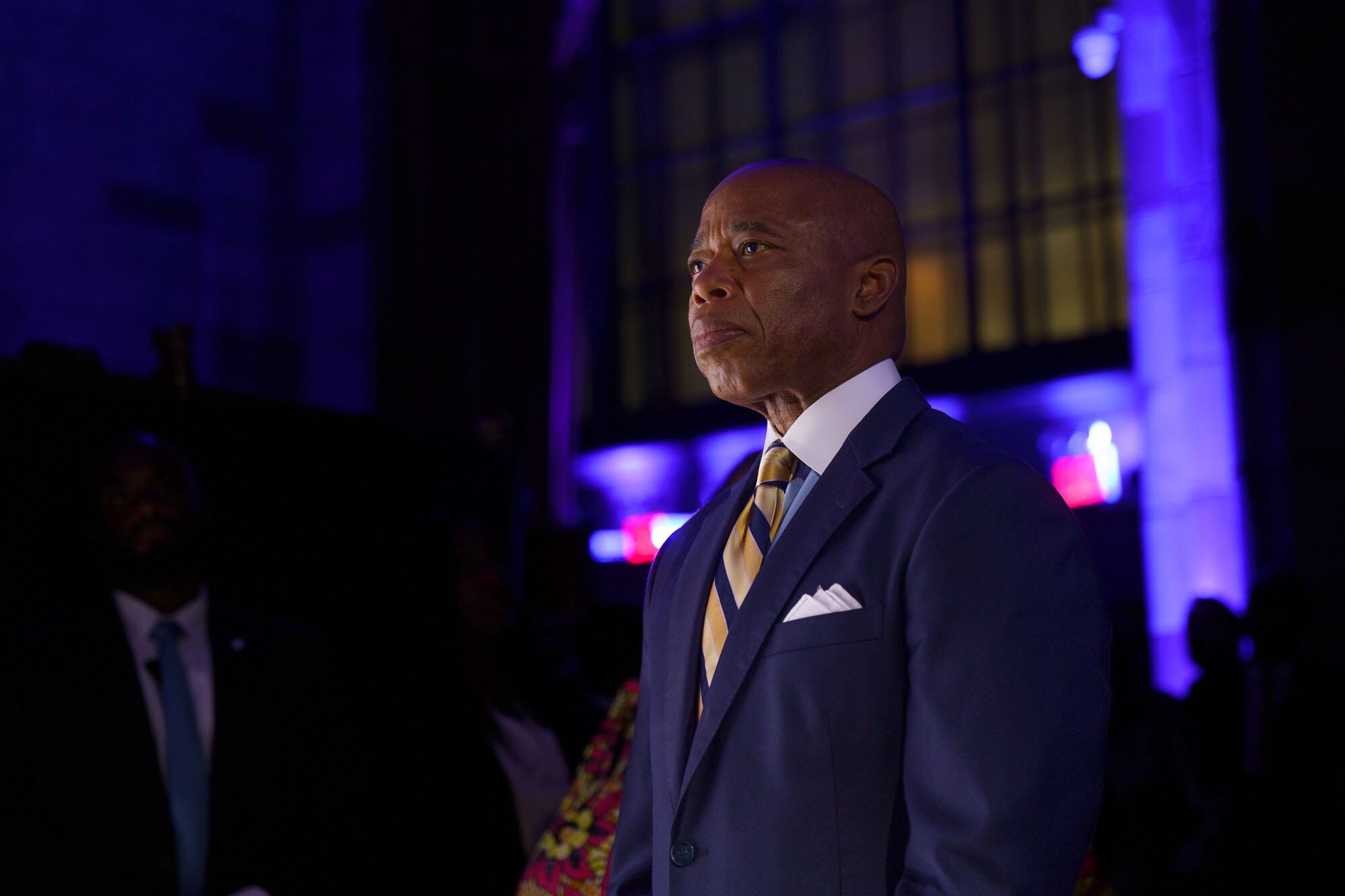Sign up for Chalkbeat New York’s free daily newsletter to get essential news about NYC’s public schools delivered to your inbox.
Last year, New York City officials ponied up hundreds of millions in city dollars to preserve education programs supported by billions in expiring federal COVID relief aid.
But in many cases, city officials committed to only a year of funding — leaving the programs’ fates up in the air once again during this year’s budget cycle.
On Thursday, Mayor Eric Adams gave his first indication of which of those programs he has prioritized keeping next year and which will be subject to budget negotiations with the City Council in the coming months.
In the preliminary budget he introduced Thursday, Adams preserved several big-ticket items, including $100 million in Education Department funding for Summer Rising, a free recreational and academic program that started during the pandemic and has attracted huge demand in recent years, though it has struggled with attendance.
Adams also pledged to continue Learning To Work, a $31 million initiative that funds counselors, social workers, and internship opportunities for students at risk of dropping out of high school.
But he did not renew funding for other major initiatives, including $112 million for 3-K, the city’s free preschool program for 3-year-olds. The preliminary budget also didn’t extend $55 million to ensure preschoolers with disabilities are able to find spots in specialized programs and $25 million to pay for extended-day preschool seats.
“While we are pleased to see Mayor Adams extend funding for summer programming and Learning to Work for next year, we are concerned that there is still a slew of important education programs at risk of being rolled back or eliminated as soon as July,” wrote the Coalition for Equitable Education Funding, a group of more than 120 youth-focused organizations, in a response to the preliminary budget.
The city’s 3-K program has turned into a political football under the Adams administration. Former Mayor Bill de Blasio expanded the program significantly using one-time federal aid, and Adams has repeatedly sought to scale it back, citing unfilled seats in some parts of the city and a need to better match seats to demand.
But supporters of 3-K, including parent and child care advocacy groups and many members of the City Council, have contended that the city needs better outreach and enrollment practices to ensure seats are filled. In many parts of the city, moreover, there are more applicants than open seats.
As part of last year’s final budget deal, the city allocated $5 million to improve outreach and get more families to sign up for prekindergarten and 3-K. That money was also not restored in Adams’ preliminary budget. Enrollment in 3-K was around 41,300 students as of earlier this school year, up about 2,000 students from last year, according to preliminary Education Department data.
In addition to the preschool funding, a number of other education initiatives that the city funded last year were not included in the preliminary budget.
Those include $41 million for arts education, $14 million for community schools, which work with community-based organizations to bring additional services into schools, $12 million for restorative justice, an approach to student discipline that seeks to avoid punishments like suspensions, and $10 million for teacher recruitment.
The Education Department has said it will need to hire thousands of additional educators to comply with the state’s class size law — a large challenge.
City officials have previously pointed out that they were able to preserve more of the programs funded by expired federal COVID aid than other districts, despite significant challenges keeping those initiatives going when more than $7 billion in stimulus education money, spanning several years, dried up.
“We inherited an administration where we had real fiscal cliffs from COVID … so many of our youth programs,” Adams said during a Thursday press conference. He credited a conservative budgeting approach and cuts in previous years with enabling the city to restore some of those programs.
Adams’ preliminary budget also includes more than $200 million for this current fiscal year, which ends this summer, to maintain the city’s efforts to staff a school nurse in every school building. Funding for school nurses also expanded dramatically during the pandemic, thanks to federal aid.
There are some new education initiatives in the preliminary budget, too, including more money for Pathways, the Education Department’s initiative to expand career-focused education. The budget commits $15 million to help students develop “academic, work, and independent living skills,” and $4 million to expand financial education — efforts Adams previewed in his State of the City address last week .
Overall, the preliminary budget is more than $114 billion, and it doesn’t include the kinds of cuts Adams has proposed in previous years — a financial situation he attributed to lower-than-expected spending on migrants and improved revenue projections.
Adams will negotiate with the City Council in the coming months before the city reaches a final budget agreement by the end of June.
Michael Elsen-Rooney is a reporter for Chalkbeat New York, covering NYC public schools. Contact Michael at melsen-rooney@chalkbeat.org






